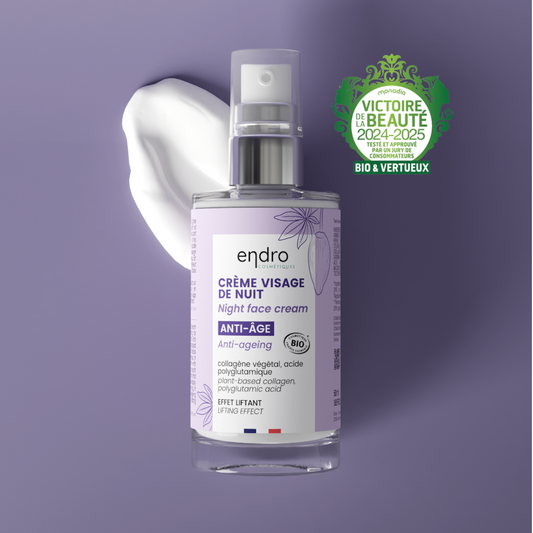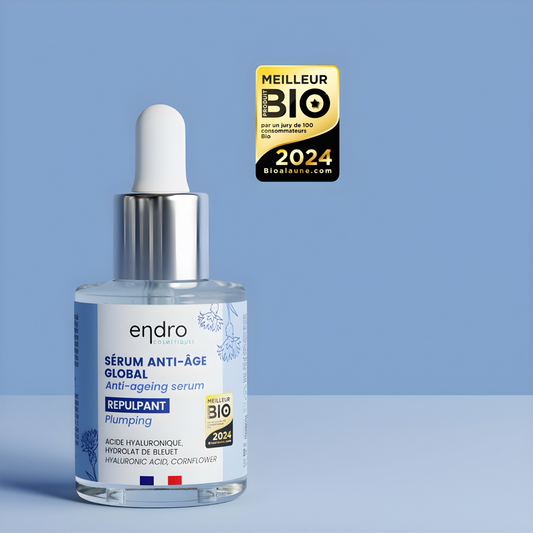When I apply a cream, mask or styling pomade, my main goal is to beautify my skin or hair, make them softer and take care of myself. I want products that are Effective and Healthy. Can I find this in organic cosmetics and organic styling products ?
1. Better for my health
 Having an organic label, whether European or Australian, means that the product is guaranteed to be produced without pesticides, artificial fertilizers or GMOs. The latter are recognized for their harmful effects on health (risk of chronic diseases such as certain cancers, neurological disorders or reproductive problems...).
Having an organic label, whether European or Australian, means that the product is guaranteed to be produced without pesticides, artificial fertilizers or GMOs. The latter are recognized for their harmful effects on health (risk of chronic diseases such as certain cancers, neurological disorders or reproductive problems...).
If the organic label guarantees that the cream I apply to myself (or to my child) contains no endocrine disruptors or carcinogenic components, this means that when I use a conventional product, I'm taking the risk of exposing myself (or my child !) to them. Not only can these substances, which are applied directly to the skin, enter my body via the cutaneous route, but I'm also suffering a double penalty : by inhaling them, I'm also exposing my respiratory tract !
Respiratory problems, headaches, hormonal disturbances, irritation and fatigue can all be caused by toxic substances, even if they are present in small quantities in health products... So imagine what could happen with, say, a cream you use every day, for several months, several years...
2. Good for the environment
If they're better for your body, they're also better for the environment. That's because they don't come from petrochemicals (industrial activities that use oil and natural gas as raw materials to produce chemicals, and are therefore responsible for soil, water and/or air pollution, and have an impact on biodiversity, including pollinators like bees).
Organic cosmetics are made from natural ingredients, with little or no processing, and contain no polluting components. What's more, manufacturing processes and packaging (designed to be recyclable) are ecologically positive, limiting waste production.
3. Transparent and ethical
Organic-labeled brands are generally very transparent about their ingredients and methods, which they are very proud of. They generally undertake to list their ingredients and explain why they are used.
Get into the habit of reading the list of ingredients in your cosmetics, and taking an interest in each of them. What does that strange word mean ? What's behind it ? What does it do ? Is it essential ? Is it good for your health ?
4. Not tested on animals

Working for the planet also means working for animals. Did you know that some countries still allow animal testing for cosmetics ? Rats, mice, guinea pigs and rabbits are deliberately bred in gloomy cages, exposed only to artificial light, subjected to skin tests, subjected to the application of chemicals to their eyes, or inhaled for hours, days, weeks or months on end... What pleasure can there be in acquiring such a product ?
The ingredients used in organic cosmetics are healthy and natural, and do not need to be tested on animals. Some of Bright and Bio's products are also certified vegan. A small number contain honey or beeswax, but in all cases, none are tested on animals.
5. A real benefit for the skin
Okay, it's natural, it's good for the environment, it's good for animals, but is it effective ?
It's a legitimate question. If I buy a moisturizing cream, it's to keep my skin hydrated. I expect a real action, a real plus for my skin. And it's fair to say that today's organic cosmetics are less aggressive and more nourishing. The absence of irritating additives and silicones that clog the skin's pores have a lot to do with it... What's more, these cosmetics contain numerous active ingredients designed to moisturize, protect against the signs of aging, illuminate, protect from the sun, regenerate...
Don't hesitate, try them out and feel the difference ! The worst thing you can do is get hooked...
A wide range of organic products:













